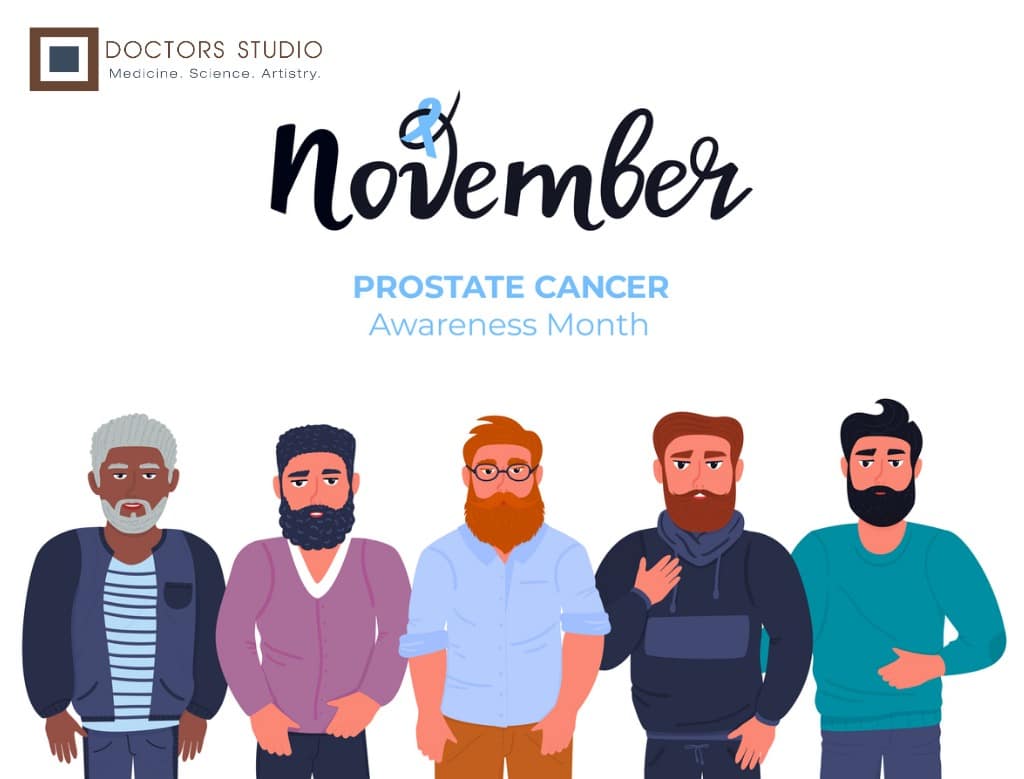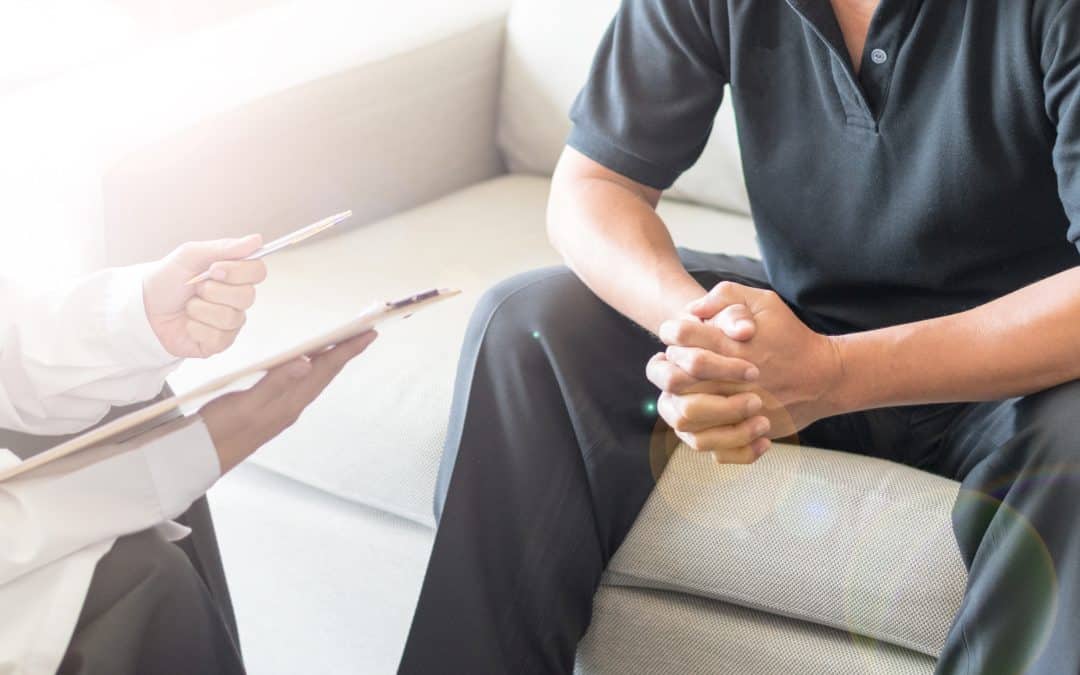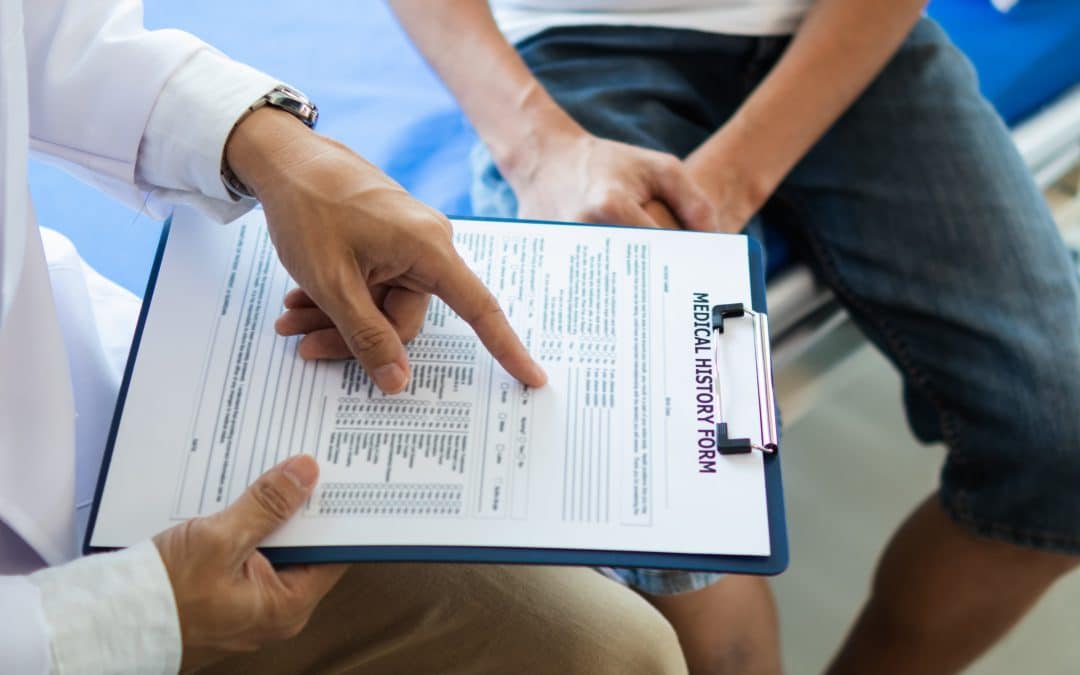Chronic Prostatitis in Florida
Discover Lasting Solutions
Chronic Prostatitis: More Than Just Discomfort
The Personal Impact
Picture this: A man, mid-fifties, always active and up for any challenge, now finds himself constantly battling a nagging discomfort in his pelvic region. It’s like a phantom pain that doesn’t seem to fade. His bathroom trips have become frequent, often disruptive, especially during the night. Intimate moments? They’ve become less enjoyable and sometimes outright painful. The impact is not just physical. Mentally, the ongoing pain and uncertainty erode his confidence, casting shadows on both his personal and professional life. If this sounds familiar, you might be dealing with chronic prostatitis.
What is Chronic Prostatitis?
Chronic prostatitis, most referred to as chronic pelvic pain syndrome (CPPS), is a condition where the prostate gland becomes inflamed and swollen. The prostate, a walnut-sized gland found in men, sits below the bladder, surrounding the top part of the urethra. Its primary role is to produce seminal fluid. However, when it’s inflamed, it can lead to a variety of symptoms that can be both debilitating and frustratingly persistent.
Symptoms of Chronic Prostatitis
From a functional and regenerative medicine standpoint, chronic prostatitis is perceived as more than just inflammation of the prostate. Instead, it’s viewed as a manifestation of underlying systemic imbalances that span multiple body systems. Here’s an elaboration on the symptoms of chronic prostatitis through this holistic lens.
Pelvic Pain
Beyond just being localized prostate pain, pelvic discomfort can indicate broader inflammatory responses. Inflammation, central to functional medicine, can be triggered by various factors like diet, environmental toxins, or microbial imbalances.
Frequent Urination
While direct inflammation of the prostate can lead to increased urination, other factors like diet, fluid balance, and sensitivity to certain foods and beverages can also influence this symptom.
Painful Urination or Ejaculation
Beyond the inflammation of the prostate, this pain might indicate broader issues with inflammation throughout the body, potentially exacerbated by dietary choices, allergies, or sensitivities.
Difficulty Starting Urination
While linked directly to prostate inflammation, from a functional perspective, one might also consider nerve health, muscular coordination, and hormonal balance.
Weak Urine Stream
Beyond prostate inflammation, this could be indicative of weakened pelvic floor muscles, systemic inflammation, or issues related to overall muscle and nerve health.
Flu-like Symptoms
Chronic prostatitis can sometimes manifest with systemic symptoms like fever, fatigue, or muscle aches. This might signal an overarching immune response or chronic inflammatory state, influenced by factors like gut health, stress, sleep, and environmental exposures.
Sexual Dysfunction
Erectile difficulties or reduced libido associated with prostatitis can be multifactorial, encompassing hormonal imbalances, psychological stress, systemic inflammation, and vascular health.
Psychological Distress
Chronic pain and discomfort from prostatitis can lead to stress, anxiety, and depression. From a functional medicine viewpoint, mental health is closely linked with physical health, with factors like gut-brain axis, inflammation, and nutritional status playing significant roles.
Functional and regenerative medicine aims to address these symptoms by getting to the root cause. Instead of just treating the symptoms, the focus is on understanding underlying imbalances, be they microbial, hormonal, nutritional, or stress-related.
Through comprehensive patient histories, targeted testing, and individualized treatment plans, this approach aims to bring the body back into balance, supporting not just prostate health but overall well-being.
What Causes Chronic Prostatitis?
It is thought that around 90% of chronic prostatitis suffers have the non-bacterial version of prostatitis. This is sometimes cause by pelvic floor dysfunction, systemic toxicity, viral and fungal pathogens, systemic inflammation, food allergy and sensitivity, and autoimmune.
The exact cause of chronic prostatitis remains a subject of research and debate. Some possible causes and factors include:
-
-
-
- Bacterial infection: Although most cases of chronic prostatitis aren’t caused by bacteria.
- Viral and fungal: HPV, EBV, Candidiasis, infections of the prostate
- Trauma: Injuries to the pelvic region can lead to prostatitis.
- Urinary tract infections.
- Autoimmune response: The body’s immune system attacks the prostate gland.
- Psychological stress: There’s growing evidence that stress might play a role in the onset or exacerbation of symptoms.
- Pelvic bowl dysfunction: Muscle spasms or tension
- Nervous system imbalance or localized nerve damage
- Systemic Toxicity from environmental toxins, pesticides, processed foods, chemicals, sugar, heavy metals, etc.
- Inflammation: Chronic, low-level inflammation, caused by diet, environmental toxins, and other factors, contributes to many chronic conditions, including BPH. It can lead to prostate cancer.
- Hormonal changes: Imbalances in hormones like testosterone, DHT, progesterone and estrogen might stimulate prostate growth.
- Diet and Nutrition: Dietary factors, such as high intake of commercially grown red meat, fats, and processed foods, contribute to BPH.
- Environmental Toxins: Exposure to certain pesticides, plastics, and heavy metals disrupts endocrine function, altering hormonal balance and contributing to BPH.
- Gut Health and Microbiome: An imbalanced gut microbiome causes systemic inflammation, prostatitis, autoimmunity and BPH.
-
-
Functional and Regenerative Medicine
vs. Traditional Urology Care
While traditional urology care primarily focuses on symptom management through medications and surgical procedures, functional and regenerative medicine adopts a holistic approach. The aim is to understand and treat the root causes of the problem.
Root Cause Approach:
We assess the whole body, considering factors like diet, lifestyle, microvasculature, hormone balance, metabolic health, hydration and mental well-being that frequently contribute to prostatitis.
Personalized Treatments:
No two bodies are the same, so why should treatments be? The Doctors Studio medical team tailors treatments to individual needs, addressing imbalances and optimizing function.
Regenerative Techniques:
This approach uses therapies that aim to heal and regenerate damaged tissues, providing longer-lasting results and improved health and wellness.
Functional Medicine Approach:
Takes a holistic approach. It doesn’t just look at the disease but aims to understand its root cause. This approach might involve looking at genetic predispositions, environmental exposures, lifestyle factors, and more. The idea is not just to treat but to prevent, rejuvenate, and regenerate. By addressing the underlying causes and imbalances that contribute to prostate cancer, functional and regenerative medicine offers a more comprehensive approach to health and well-being.
-
-
- Comprehensive assessment to understand the patient’s entire health picture including specialty labs.
- Dietary and lifestyle changes tailored to the patient’s lab results.
- Use of natural supplements to target inflammation and promote healing.
- Stress management and physical therapies.
- Sleep optimization and restoration
- Personalized treatment plans that evolve with the patient’s progress.
- IV Nutrient/Ozone/UBI “TRIFECTA” Therapy
- EBOO, an oxygenation and ozonation process enhances the body’s immune response, reduces inflammation, and promotes healing.
- Hormone replacement therapy (TRT)
- Nutritional therapy to optimize cellular health
- Detoxification to rid the body of potential carcinogens
- Stress management, as chronic stress, can suppress the immune system
- Methylene Blue for urinary tract and prostatitis acts as a mild antiseptic, reducing bacterial activity and inflammation in the urinary tract. Its anti-inflammatory effects aid in alleviating symptoms of prostatitis
-
Regenerative Medicine Approach:
-
-
- Ozone injections to promote healing directly in the prostate tissue.
- PEMF (Pulsed Electromagnetic Field Therapy) to enhance healing and reduce inflammation.
- Neural therapy for chronic pelvic pain syndromes
- Custom antibiotic, antiviral, anti-fungal and anti-inflammatory prostate injection designed based on lab data collection.
- LI-ECSW (shockwave) to correct tight pelvic floor muscles and to stimulate tissue regeneration and blood flow
- Platelet Rich Plasma Prostate Injections
- Exosome and Stem Cell IV Infusions
- IV Chelation Therapy for removal of toxic burden
- Peptides specifically for healthy prostate tissue regeneration, decrease of inflammation, and hormone optimization.
-
In contrast, traditional urology might prescribe antibiotics, even if bacteria aren’t present, or recommend procedures that offer temporary relief. While both approaches have their merits, functional and regenerative medicine focus on long-term healing and health optimization, rather than merely putting a band-aid on the symptoms.
“Seeking relief from chronic prostatitis?”
Related Blogs
Ozone & Prostate Health: Demystifying Prostate Ozone Injections
The Lifelong Athlete: Longevity Strategies for Peak Performance. Learn about cutting-edge interventions from Doctors Studio in Boca Raton.
The Link Between Chronic Prostatitis and Undiagnosed Food Sensitivity
The Lifelong Athlete: Longevity Strategies for Peak Performance. Learn about cutting-edge interventions from Doctors Studio in Boca Raton.
Prostate Health Challenges: A Holistic Approach
Explore Doctors Studio's unparalleled membership benefits in Boca Raton—top professionals, exclusive discounts, holistic services for a wellness journey
Join the Wellness Revolution: Membership Benefits at Doctors Studio
Explore Doctors Studio's unparalleled membership benefits in Boca Raton—top professionals, exclusive discounts, holistic services for a wellness journey
The Proactive Man – Navigating Prostate Health and Cancer Prevention
Explore proactive tips for optimal prostate health and cancer prevention. Doctors Studio offers expert guidance for men's well-being.
Functional Health for Men: What Is Function of the Prostate?
Have you ever wondered about the function of the prostate? Discover a holistic approach to men's and prostate health so you can live a vital life!
Enlarged Prostate In Boca Raton: Treatment And Advice
How to find lasting treatment and genuine empowerment for an enlarged prostate in Boca Raton.
Discovering A Holistic Approach To An Enlarged Prostate
Functional medicine provides a holistic approach to an enlarged prostate—the treatment you’re looking for.
Three Prostate Issues (That Aren’t Cancer)
Now more than ever, men are experiencing prostate issues that prevent them from enjoying intimacy and affect their daily quality of life.
Benign Prostatic Hyperplasia & Prostatitis And Interstitial Cystitis
Here's why being dehydrated can sabotage your fitness goals - and how we can help you to smash through everyone one of them!
Interested in Improving Your Prostate Health?
How To Get Started

Choose an Assessment Plan
Start the process by determining your current
wellness status.

Schedule a Consultation
Meet with an expert practitioner to review the results of you assessment and discuss your customized treatment plan.

Begin Your Wellness Journey
It's time to get back to balance and experience optimal wellness and quality of life














